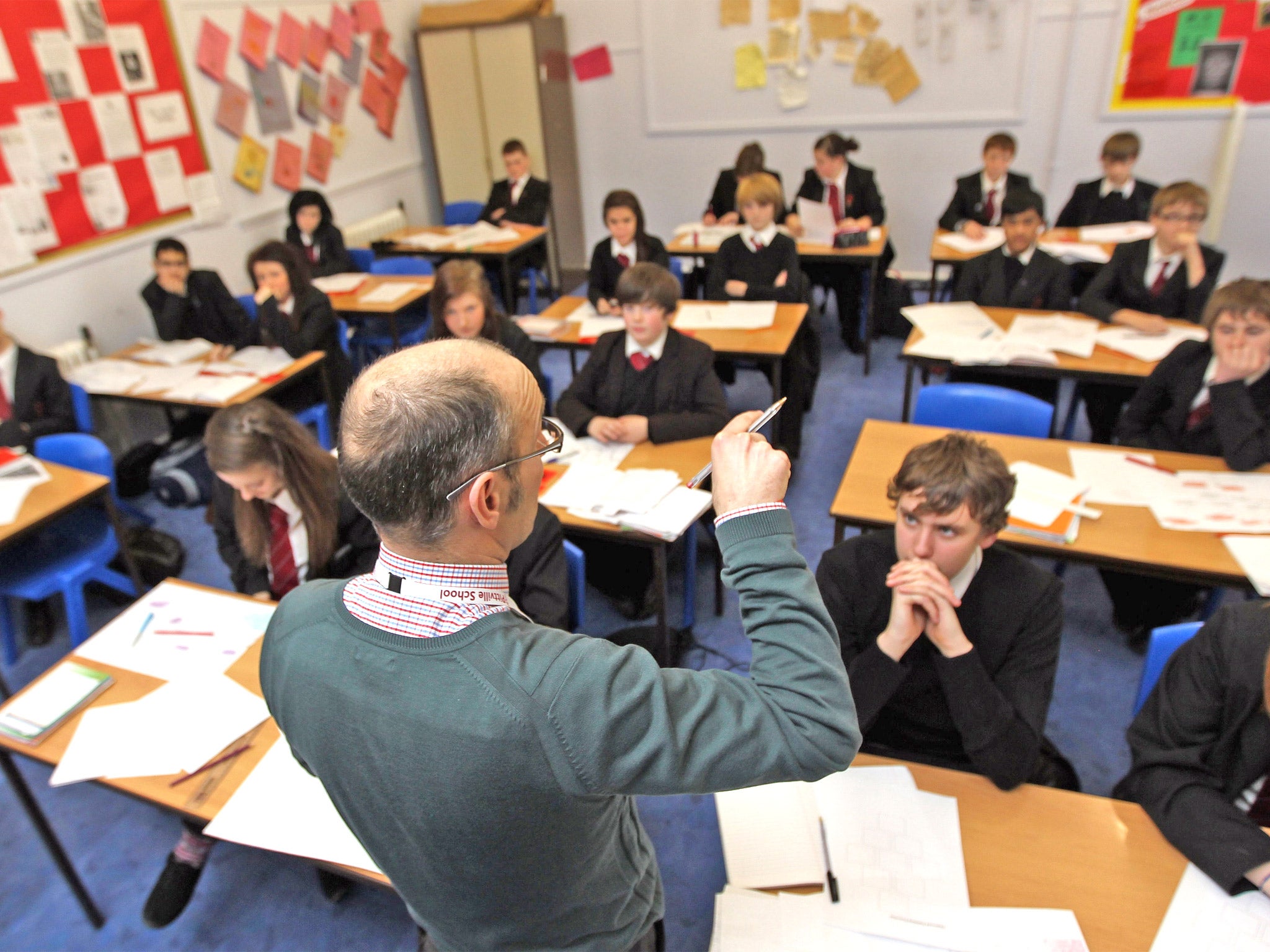Britain's boarding schools told to adopt 'gender neutral' uniform policies to avoid discrimination against LGBT pupils
'LGBT bullying is as important as sexist and racist bullying'

Your support helps us to tell the story
From reproductive rights to climate change to Big Tech, The Independent is on the ground when the story is developing. Whether it's investigating the financials of Elon Musk's pro-Trump PAC or producing our latest documentary, 'The A Word', which shines a light on the American women fighting for reproductive rights, we know how important it is to parse out the facts from the messaging.
At such a critical moment in US history, we need reporters on the ground. Your donation allows us to keep sending journalists to speak to both sides of the story.
The Independent is trusted by Americans across the entire political spectrum. And unlike many other quality news outlets, we choose not to lock Americans out of our reporting and analysis with paywalls. We believe quality journalism should be available to everyone, paid for by those who can afford it.
Your support makes all the difference.Schools should adopt “gender neutral” uniform policies to avoid discrimination against LGBT (lesbian, gay, bisexual and transgender) pupils, Britain’s boarding schools were told.
Elly Barnes, chief executive officer of Educate and Celebrate - which campaigns against discrimination in schools, said: “If it’s all right for a girl to wear trousers, why should a boy not be allowed to wear a skirt. We should be giving them the option.”
Ms Barnes was called in by the Boarding Schools Association to give its conference a talk on how they could make their schools more “LGBT friendly”.
She said that schools should lay on training for their staff so teachers become familiar with the language of the gay and lesbian community.
Most will not have received any training about how to tackle homophobia as part of their training courses, she added.
“Having the training is an essential part of their continuous professional development (CPD)” she said. “They need the confidence to embrace the new language, I don’t think they’ll have used the words ‘lesbian’ or ‘gay’ in a classroom. It is putting those words in an easy context.
“It may just be a case of a pupil saying ‘miss, what’s a lesbian?’ and you can say ‘a lesbian is a woman who has relationships with other women’.”
She urged all schools to update their equal opportunities policies so that they promoted same sex relationships in a positive manner.
Books should be used that described children who have “two mamas” or “two daddies”, she added, and anti-bullying policies should be updated to include the eradication of homophobic bullying.
“LGBT bullying is as important as sexist and racist bullying.
“If a pupil says ‘my pen’s run out, it’s so gay’, you should challenge it. ‘My pen’s so Jewish, my pen’s so black’, you wouldn’t be allowed to say it.”
Children learnt about the suffragette movement and the black struggle through the civil rights movement in lessons, she said. “You ask anyone what do they know about the LGBT struggle and what’s the answer? It’s completely unnoticed.
“This is not just an area for PSHE (personal, social and health education) or anti-bullying. It could be part of maths lessons, English lessons, science lessons. I’m not advocating all teachers suddenly start talking about lesbianism - but in the same way as you teach about the Holocaust and the yellow stars worn by the Jewish community, you could look at the significance of the black and the pink triangle.”
Ms Barnes, an LGBT adviser with Birmingham City Council whose organisation has won government grants to tackle homophobia in schools, said: “We can’t ignore one part of the people who are around us.
“There should be displays on the walls celebrating different families, That is a nice start. Some children have two mamas and some parents have two daddies - let’s have that represented on the wall.
“One in ten people identify as being LGBT. They shouldn’t feel they can’t be part of the community.”
Join our commenting forum
Join thought-provoking conversations, follow other Independent readers and see their replies
Comments